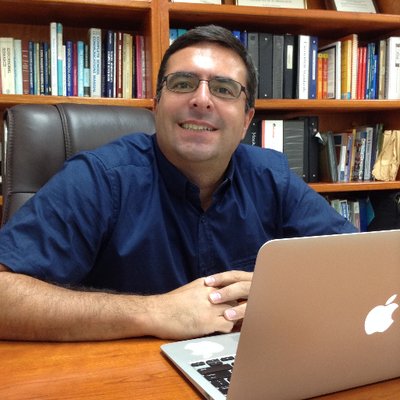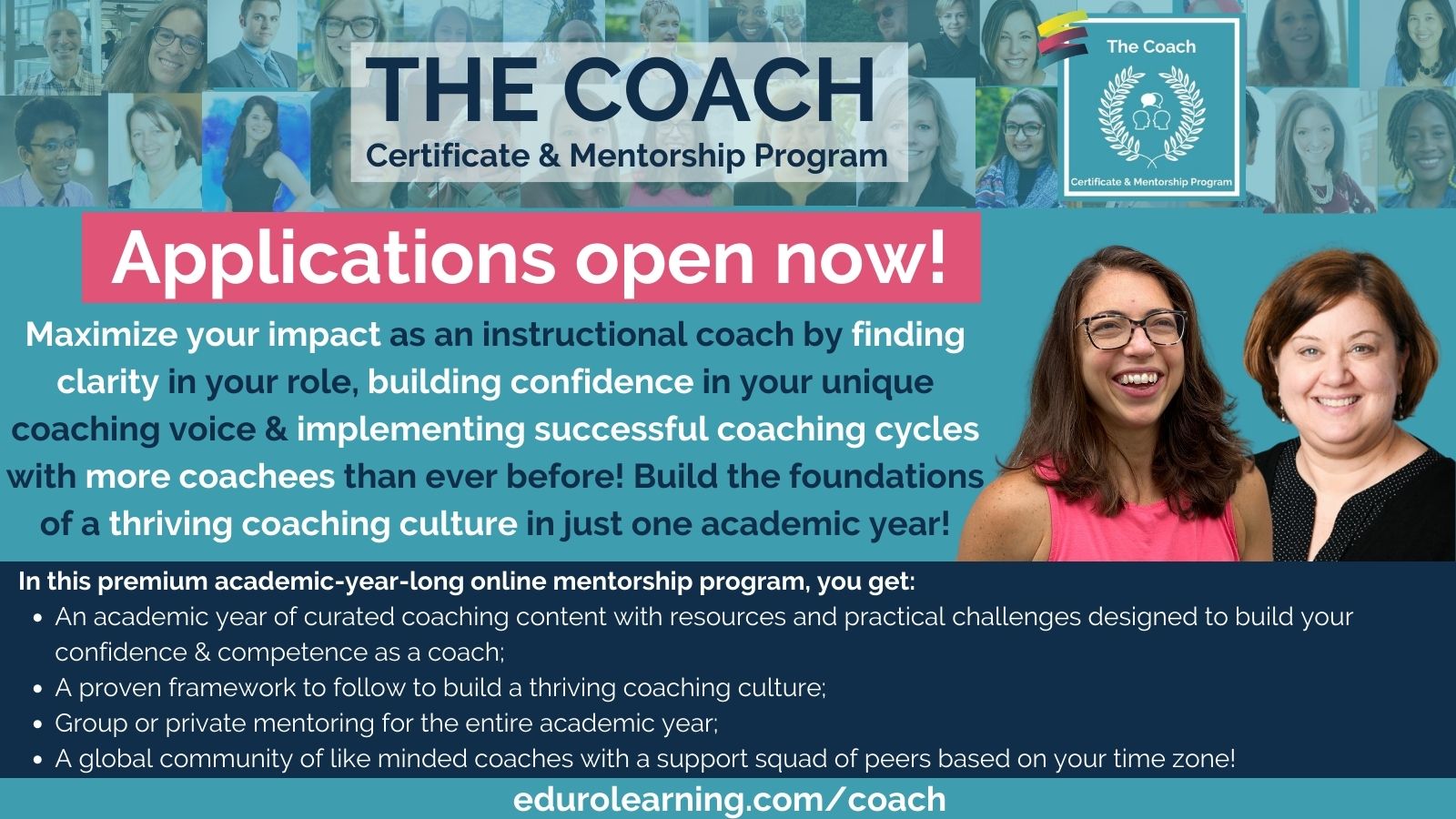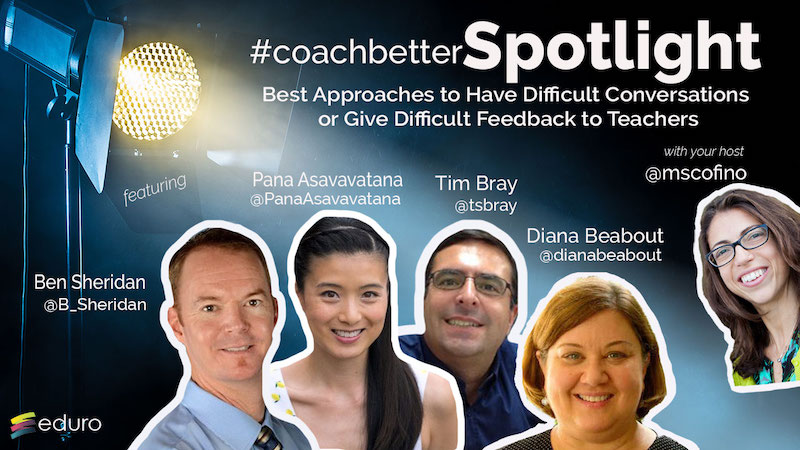In this #coachbetter episode, we have a conversation about when, why, and how you might provide difficult feedback to teachers, as a coach. We have four of our superstar guests from our YouTube series, Coaching Fundamentals, Tim, Diana, Ben, and Pana, so you get a wide range of perspectives! This conversation was prompted by a question in our #coachbetter Facebook group: “What are the best approaches to have difficult conversations or give difficult feedback to teachers?” We share our strategies for approaching difficult conversations in a variety of contexts, so hopefully that will make a tough part of the coaching job a little bit easier for you!
Subscribe to #coachbetter via your favorite Podcast Player!
Featured Guests




Bonus! Watch the Spotlight Version on YouTube!
Show Notes
Tim: start with some disclaimers, this are observations that I saw, or questions I had. Not about you as an educator or a person. Start by saying this might be an awkward conversation. Focus on what you saw students doing.
Kim: Looking for learning peer observations
Diana: Coaching is about relationships, having that positive relationship helps demonstrate that you care about them as an educator. Already having positive experiences and building a strong relationships means difficult conversations may be easier.
Ben: have vulnerability yourself. Share some personal connections (I’ve struggled with this myself”). Use the data as a “third point” reference. “What is this data telling us?” Having the data to focus on makes it about the information, not about the teacher.
Pana: Once we hit a point that I anticipate there will be a defense mechanism, I try to name the things first the things that they’ve said to me frequently. Mirror back what they’ve said before, so they know they’ve been heard.
What happens when it comes from somewhere else? Not an agreed up observation / professional growth context? If you see something that needs to be addressed.
Diana: Jot down some notes first to process. Some people you can be direct with, others you have to be more careful about your language. Don’t put it off.
Kim: have the meeting in a “third” location, not their office, not their classroom, another nuetral place. Ask for a meeting in this place so they know there will be a different conversation.
Ben: approach it as a puzzle. I notice you do this specific thing all the time, can you tell me more about that? Invite reflection in this conversation.
What would be a situation that you would feel like you need to have this kind of conversation with a colleague?
Ben: when I see a certain behavior that doesn’t get the intended result (for example saying “um, I’ll wait”)
Tim: Pointing out your relationship: “I’m here to support you, I’ve noticed XYZ, what is the outcome you’re trying to achieve with that?”
Clint: When there are collaborative planning meetings, if there is a colleague who is not contributing productively, or taking a negative tone. How are we stopping people from sabotaging others?
Diana: Teachers asking for the exact same support every year to do the same mini-lesson. “How can I help you feel more comfortable talking to the kids about this yourself”
Ben: often coaches are seen as another support service. And we’re not. “Can you come in and take half my class while I do these assessments?” Honor all the work that they’re doing, and then ask to plan this first next time. Provide other alternate solutions. Focus on the positive. See it as an opportunity.
How do you help teachers understand what is and what is not your job?
Tim: Build understanding about your role over time, through conversations, joining meetings putting information in public spaces (like in the faculty lounge). Self promotion.
Pana: getting into meetings & sharing success stories within the team. “If you have something that you’re really interested in, this is how we can work together.” Highlight the great things that teachers are doing and share how that might provide a great coaching opportunity.
Diana: can try to avoid some of the difficult conversations by being really clear about your roles. When the role is undefined you have the potential of having more difficult conversations.
How do you make the shift from coaching light to coaching heavy?
Clint: When people invite you into their room, and give you the opportunity to coach light, that’s building the relationship and trust. You’re depositing money in your coaching bank. The art of it, is how do you withdraw the deposit you put into the bank? Sometimes it’s easier to go from light to heavy. How do you leverage the coaching light into the conversations you want to have.
Ben: Clarity of what you want to focus on & how you’re going to measure what you need to understand. It’s less subjective and more objective when it’s hard data. Can set up a video camera in the back and give it to the teacher – you don’t even need to see it. Feedback comes from them. Coaches are often seen as the expert, if you’re just helping a person go through the process of understanding what’s taking place. Remove yourself from the situation, and let the data speak for itself. It’s not about what you noticed, it’s about what the data show.
Another option: “I want to try this, will you allow me to do this in your class and observe me” Model how to receive feedback and set another goal.
Diana: What are the goals of the school, what are the goals that have been set for them. I’m here to help you move in this direction. Modeling taking on challenges yourself.
Clint: model the behavior you would like to see, and ask them for feedback. Could be a way to open the door to a deeper reflective conversation. Culture of observation & opening yourself up to being vulnerable.
Clint: Having Hard Conversations by Jennifer Abrams is a great resource. Important to prepare before a difficult conversation.
Ben: Radical Candor by Kim Scott: having the language to express why you want to be very direct with someone
Tricia (via Tim): How to Address Tough Topics in Staff Meetings: https://www.edutopia.org/article/how-address-tough-topics-staff-meetings
Level Up Your Coaching with The Coach!
If you are ready to dive deep into your coaching practice, to help you #coachbetter and build a thriving coaching culture in your school, please join us for our next cohort of The Coach!
Wherever you are in building a coaching culture in your school, The Coach will give you the strategies, skills and tools you need to make coaching a success and will empower you to confidently apply instructional coaching strategies in any situation – from building a coaching program, to having coaching conversations, to being a leader in your school community. We facilitate only one cohort each academic year so we can offer individualized support for each participant.
Coaches of all levels are welcome: you’ll start the program with a self-assessment to determine exactly what the next steps are for you!
Registration for our next global cohort opens once a year – check the website for details!






Recent Comments